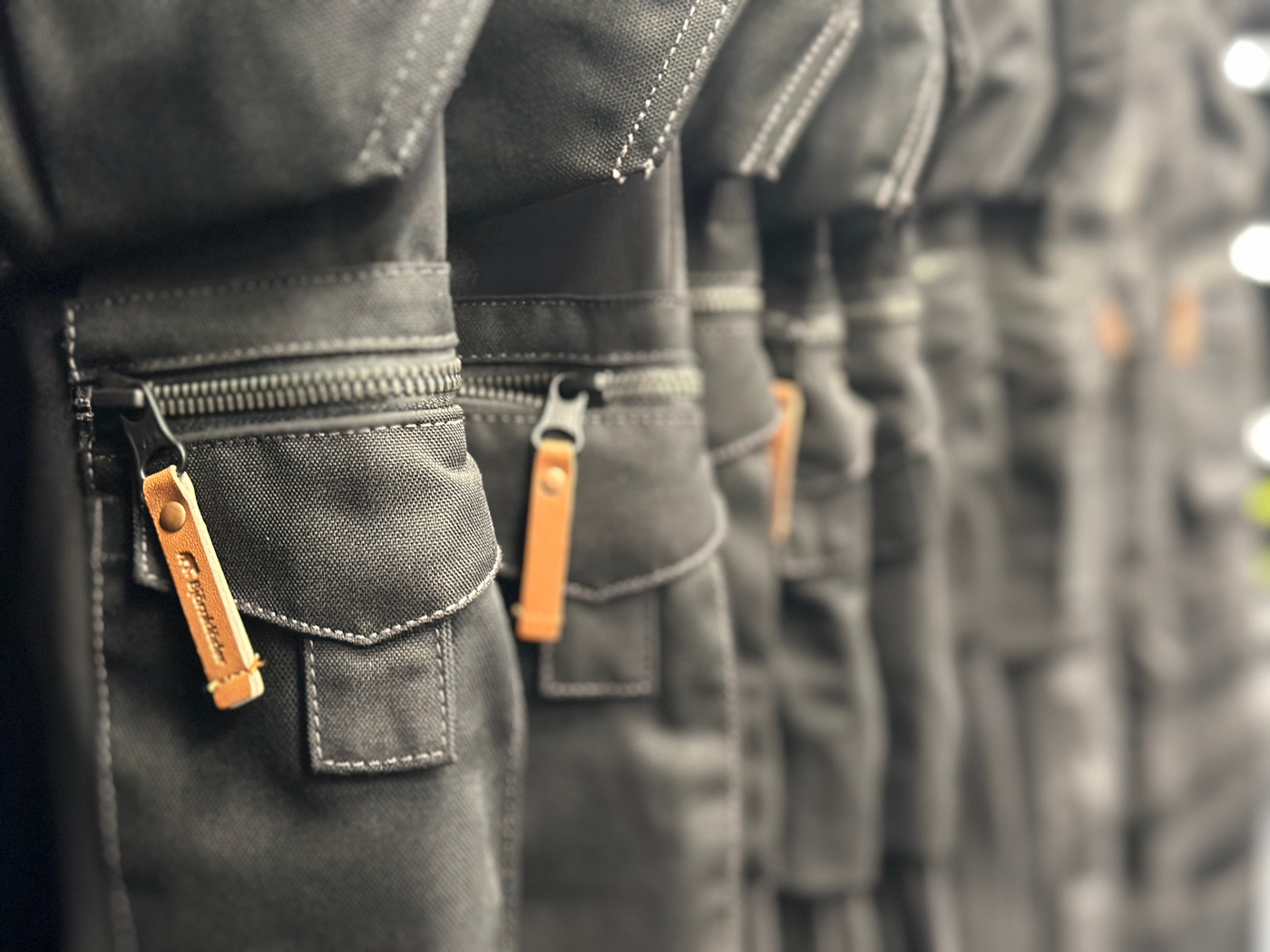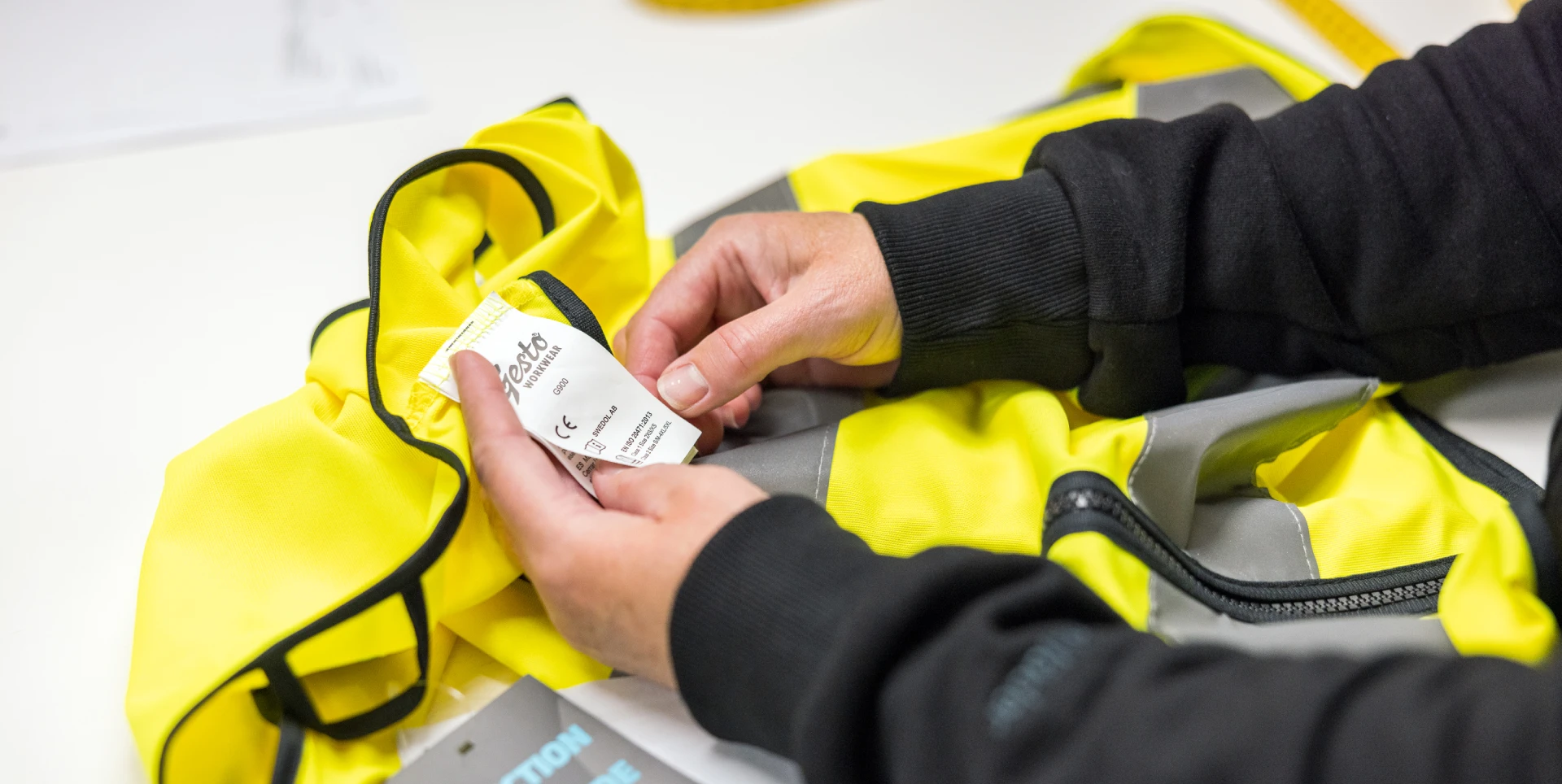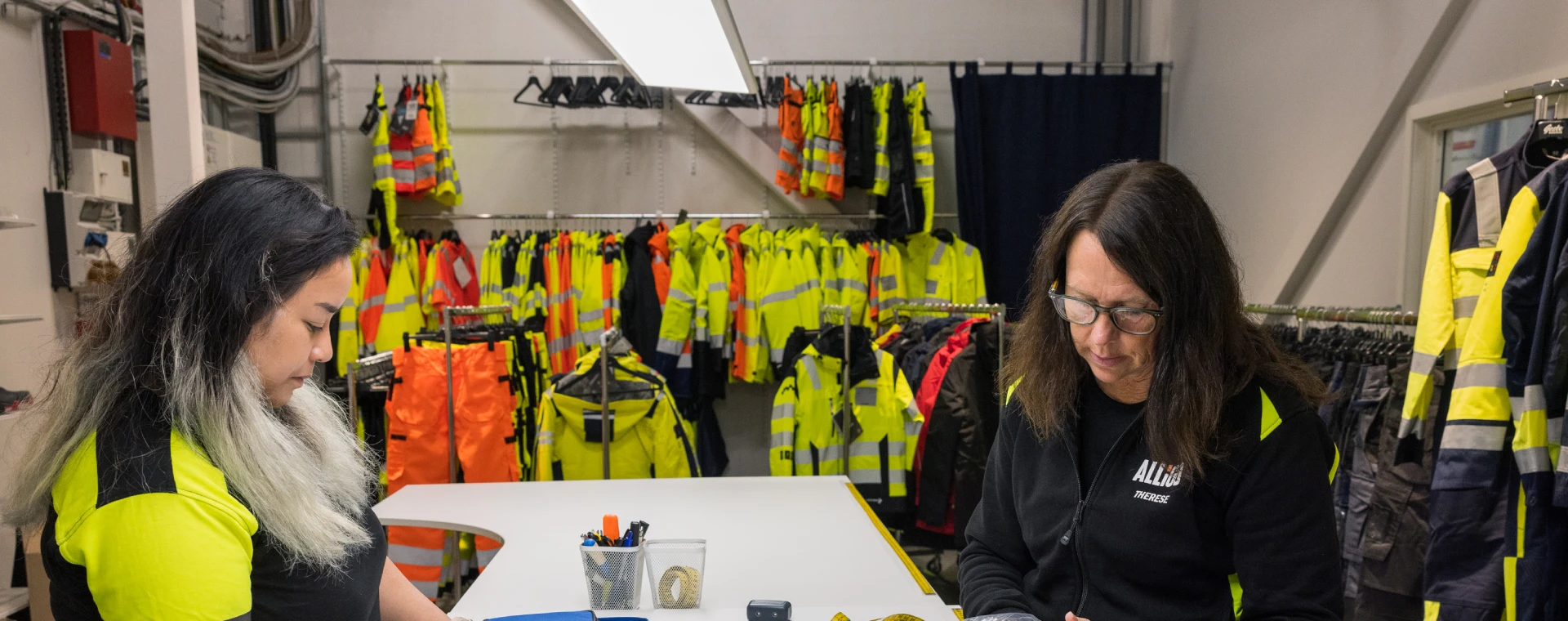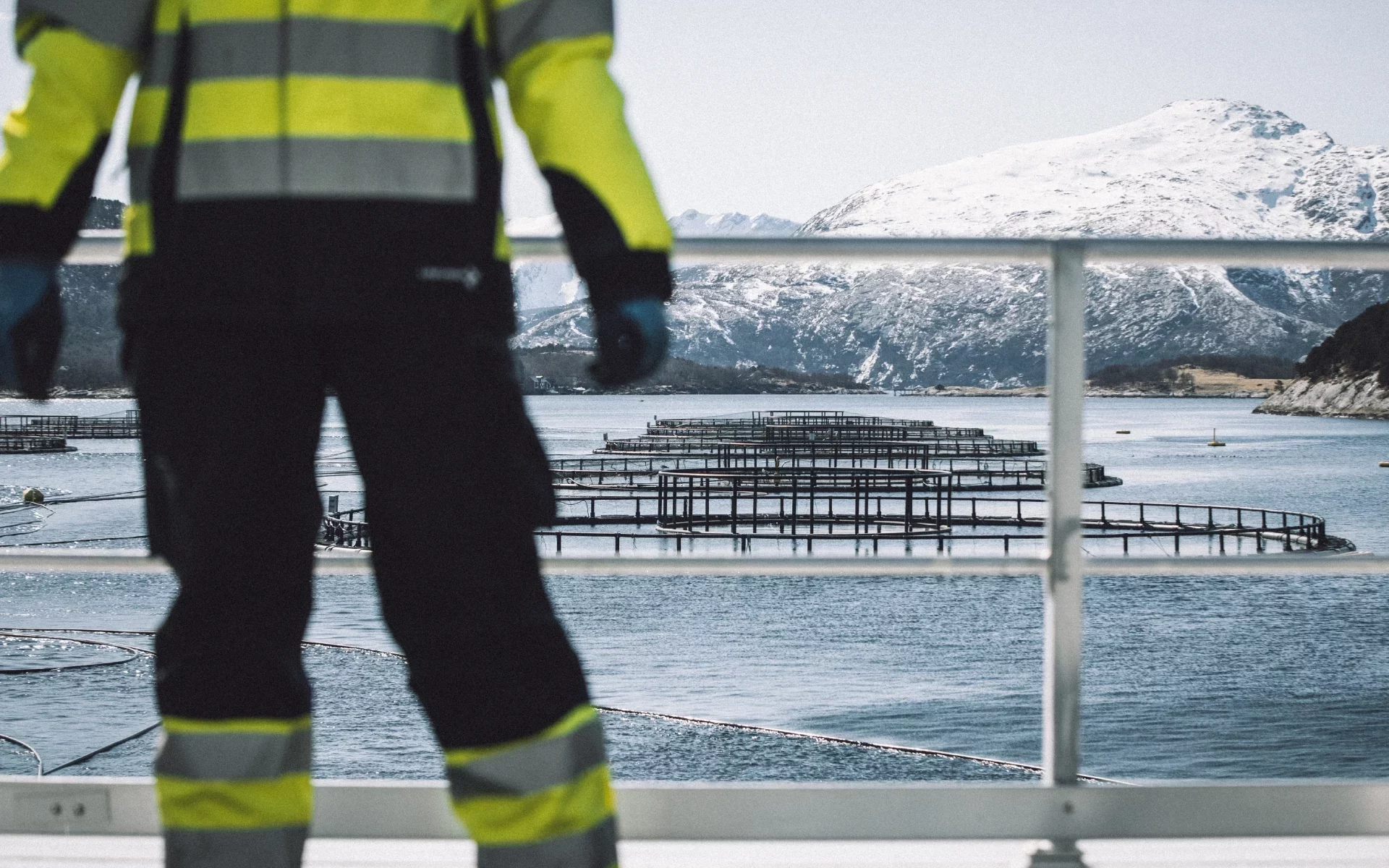
Environmental responsibilities
The majority of Alligo’s environmental and climate impact arises in connection with the manufacture of the products we sell. This includes, for example, emissions to air, water and land from the extraction of raw materials, in manufacturing processes and from the transport of goods.
Climate impact in the value chain
In 2022, Alligo mapped the general climate emissions for the Group.
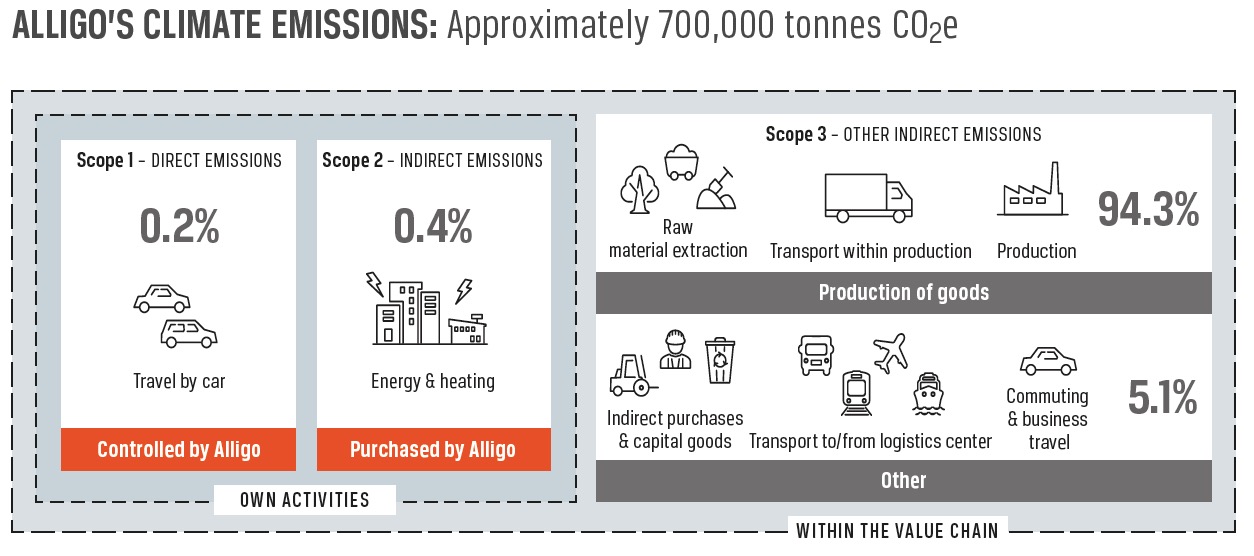
Direct emissions from Alligo’s own activities (scope 1) arise mainly from business travel by car. Indirect emissions (scope 2) arise from the use of electricity and heating in stores, warehouses and offices.
Other indirect emissions in the value chain (scope 3) arising from the manufacture of products account for the majority of Alligo’s climate emissions. Additional other indirect emissions derive mainly from purchased transport, indirect purchases and business travel.
Scope 1 – Direct emissions from Alligo’s own activities
Emissions arising from Alligo’s own activities account for around 0.5 per cent of total emissions. The majority of direct emissions (scope 1) consist of emissions from company cars.
Half (48%) of Alligo’s company cars are hybrids (including plug-in hybrids). 6% are electric and 46% run on diesel or petrol. The majority of the vehicles are used in our sales organisation. The ambition is to to increase the proportion of electric company cars wherever possible, taking into account the available charging infrastructure and the cost.
Scope 2 – Indirect emissions
The climate impact from energy use at Alligo’s premises is included in indirect emissions (scope 2). We buy product-specific fossil-free electricity generated using hydro power and wind power in Sweden and Norway.
The Group’s long-term ambition is to consume less than 65 kWh/m2. Electricity consumption has gradually been reduced to 71 kWh/m2 (73.2).
A large proportion of Alligo’s premises are heated using district heating, where a significant share o the fuel mix comes from renewable sources or waste.
Alligo is carrying out systematic work to improve energy efficiency at its own premises. Below are examples of on-going actions:
- Installed energy-efficient LED lighting in 10 stores.
- Alligo’s Norwegian operations plan to install sensors to monitor temperature and ventilation.
- The new logistics centre in Vestby, Norway, will install solar panels that are expected to produce more electricity than the logistics centre needs.
Scope 3 –Climate impact from products
Manufacture of the products that Alligo sells account for approximately 94 % of the Group’s climate-affecting emissions.
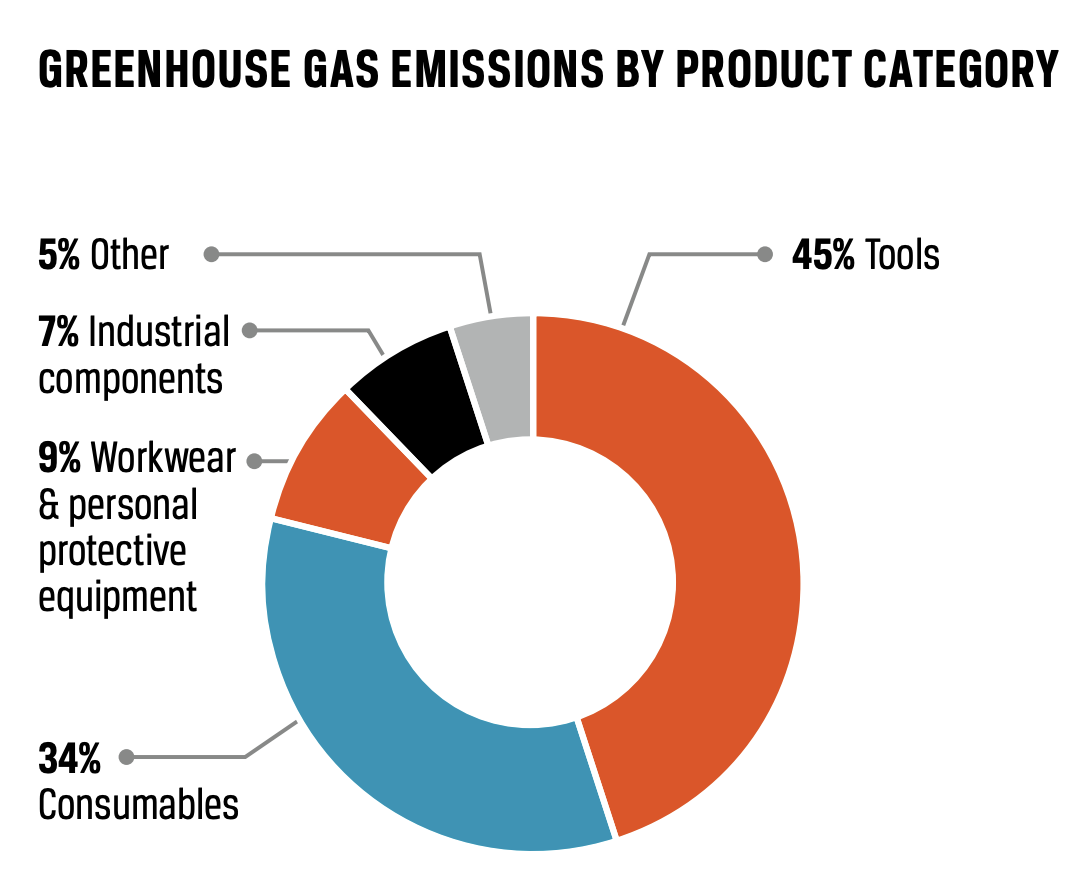
The largest share of emissions arises from the Tools product category. These products often contain metal and/or plastic, materials where fossil fuels are often used in the manufacturing processes.
Within the Workwear & personal protective equipment product category, the production of textiles has a large climate impact. The Group has good opportunity to influence the choice of materials and manufacturing processes for Alligo’s own brands in this category.
Manufacturing products has the most climate impact, so Alligo strives to maintain a high level of quality in our range, which allows customers to use the products for longer. A longer product lifespan also means less resource use, reduced transport between all the different stages in the production chain and ultimately less waste.
Scope 3 – Climate impact from transport
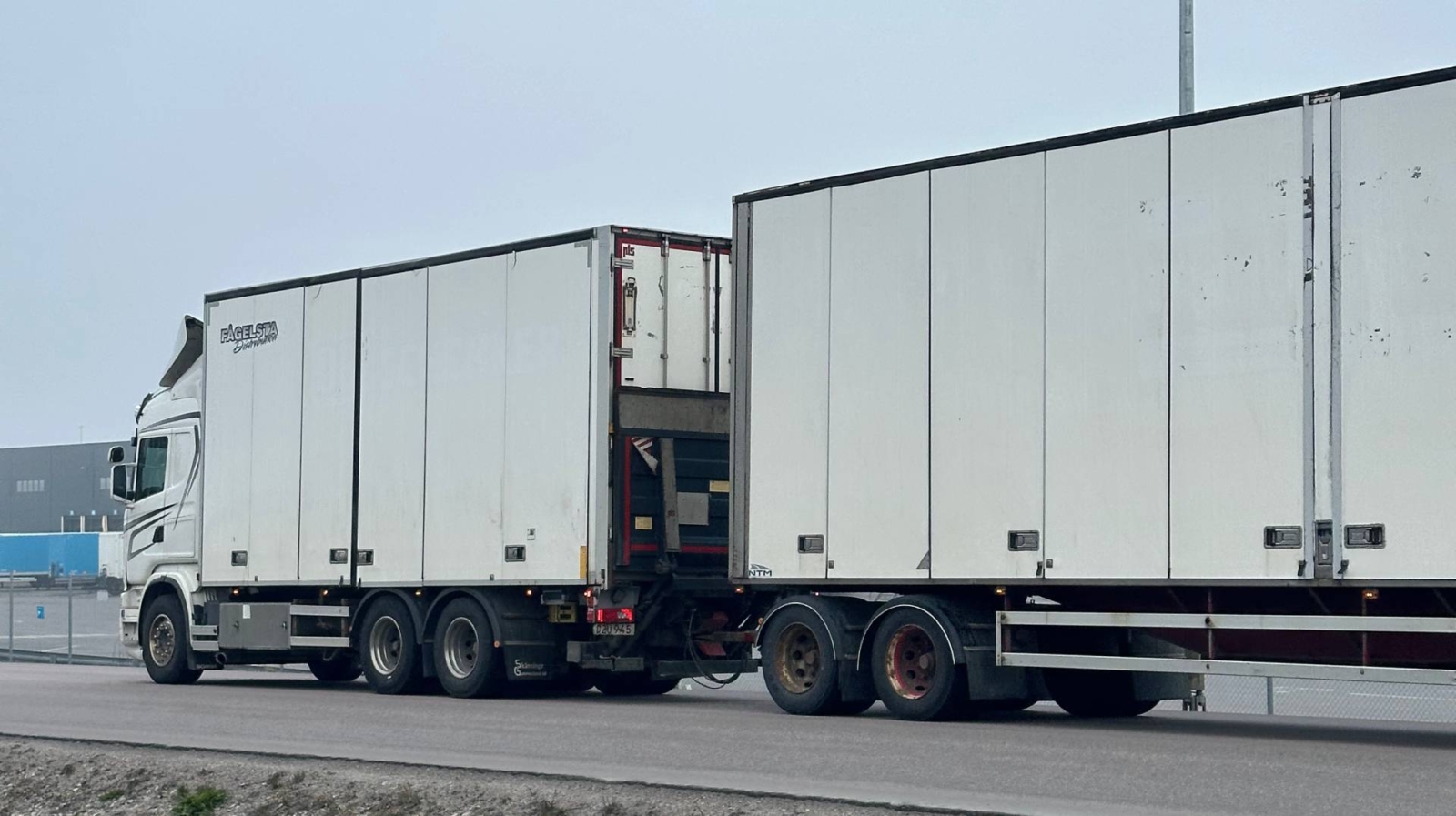
Goods are transported from suppliers by sea, rail, road and air to Alligo’s logistics centres. These indirect emissions (scope 3) account for 0.4 % of Alligo’s total emissions.
Ships account for the majority of transport from our suppliers in Asia. Air freight is used only where this is necessary in order to meet the customer’s delivery requirements. Alligo aims to reduce its air freight, which accounted for less than 0.5 per cent of inward shipping in terms of weight in 2023.
Outward transports from Alligo’s logistics centres to the customer or to the store are carried out by truck by subcontractors. Alligo places requirements on suppliers through the Supplier Code of Conduct as well as through specific contractual requirements such as transport providers having to take steps to reduce their environmental impact, continuously improve their environmental performance, minimise resource use and reduce their carbon emissions.
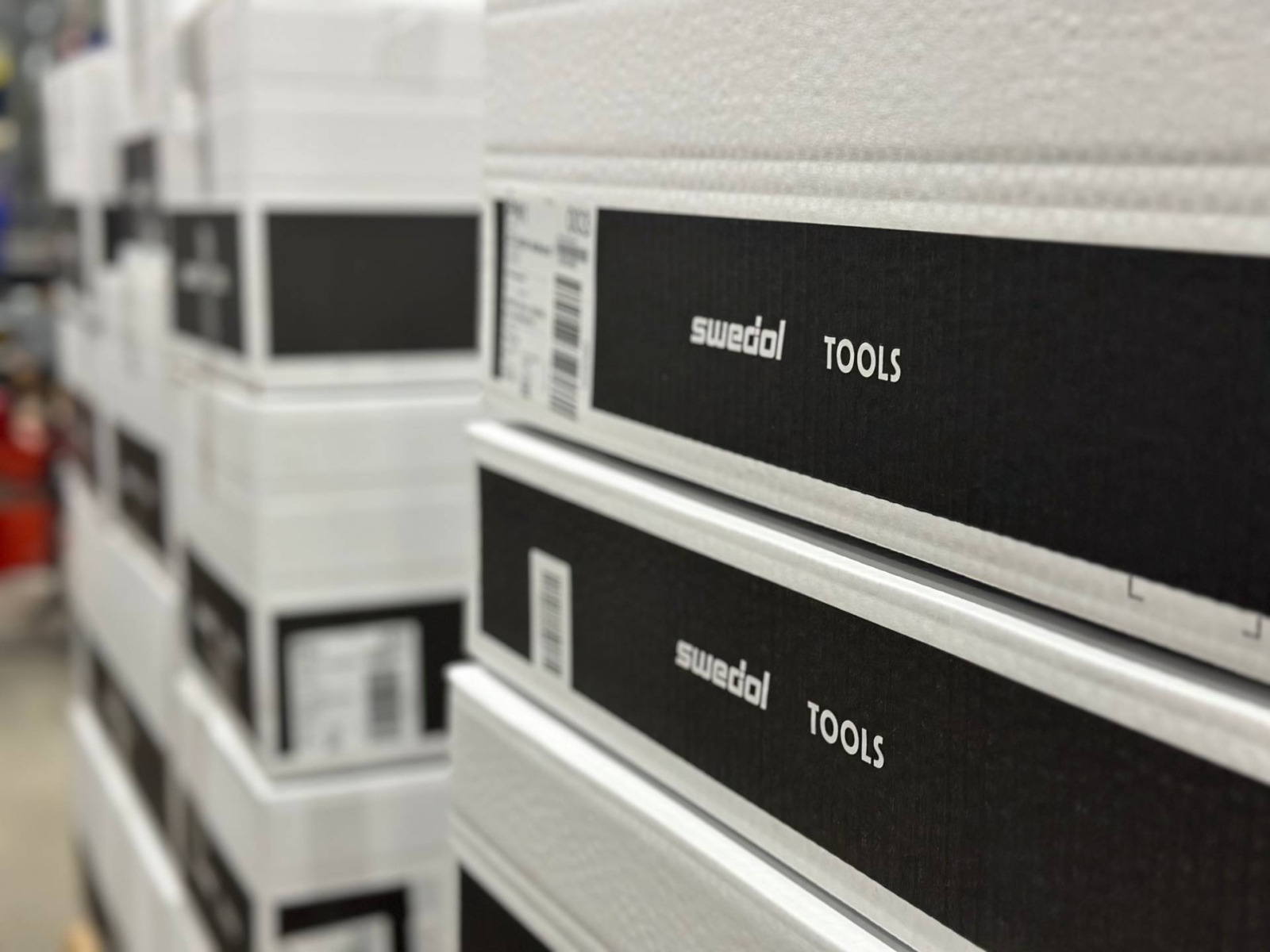
Other activities aimed at reducing the Group’s climate impacting emissions are:
- Goods transported within the Oslo area are carried by electric vehicles.
- Goods from Italian suppliers are transported by train instead of truck.
- The packaging machine at Alligo’s logistics centre in Örebro improves capacity utilisation by automatically selecting the optimum box size based on the contents.
In 2023, the total emissions from outward transport was reduced by 11 %.
